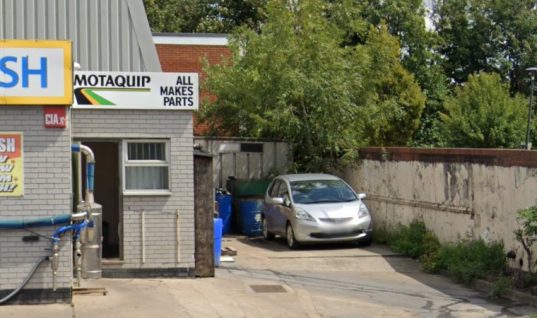With a car parc average age that’s ever increasing, millions of vehicles are no longer under any sort of manufacturer warranty. This shift directly translates to an increase in demand for maintenance and repair services outside of traditional dealership networks, creating a substantial and currently ever-growing market for independents to cash in on.
Despite this opportunity, many independent garages still face intense competitive pressures from franchised main dealers, who have historically offered advantages like manufacturer-approved parts, warranty preservation, and advanced diag equipment.
Adding to this, the recent cost-of-living crisis has led over half (51%) of UK car owners to look for more affordable servicing options, even if it means delaying non-essential repairs – a short-term saving that often leads to more significant problems! This catch-22, where drivers want cheaper servicing but also need vehicle longevity, is precisely where service plans come into play.
By spreading costs and locking in prices, service plans offer a budget-friendly way to ensure consistent, timely maintenance, preventing larger future expenses. It also gives independents a revenue stream they can count on.
Understanding Service Plans and Growth
A service plan is essentially a pre-paid agreement for vehicle maintenance, often featuring inflation-proof pricing, allowing customers to spread costs through fixed monthly payments.
This decreases the burden of large, unexpected bills and actively encourages drivers to stick to regular service schedules. Most plans typically cover standard maintenance items like oil and filter changes and routine inspections, with more comprehensive options potentially including MOTs or additional services.
Service plans mirror the broader “subscription economy,” aligning with consumer preferences for predictable recurring payments that they can easily budget month to month.
The service plan landscape comes in two parts, with offerings from both main dealerships and independent garages. Main dealer plans typically focus on manufacturer-approved servicing and a “full dealer service history,” often perceived to enhance resale value. For dealerships, these plans are primarily a customer retention tool, guaranteeing future revenue. And possibly a future new car sale too.
Independent/third-party plans, however, are generally more affordable and provide greater flexibility, often accommodating any make or model of vehicle. A significant advantage for customers is the ability to choose a local garage they trust. While the coverage of independent plans can vary, reputable providers ensure approved parts are used, maintaining vehicle warranties.
Crucially, 70% of UK motorists prefer independent garages for their personalised approach, honesty, trustworthiness, and often lower prices. Service plans empower independents to formalise this value proposition, offering structured maintenance just like main dealer plans but with the added benefits of local trust and cost-effectiveness. Win-win.
| Feature | Main Dealer Offerings | Independent/Third-Party Offerings |
| Coverage | Routine servicing, often includes manufacturer-specific checks, sometimes MOT. Wear & tear usually excluded unless comprehensive. | Routine servicing, often flexible to include MOTs. Wear & wear usually excluded unless specified. |
| Payment Structure | Fixed monthly/upfront, often inflation-proof. | Fixed monthly/upfront, often inflation-proof. |
| Parts | Manufacturer-approved/genuine parts. | Approved/OEM parts, ensuring warranty validity. |
| Warranty Impact | Maintains manufacturer warranty explicitly. | Maintains warranty if approved parts and schedule are followed. |
| Flexibility | Often brand-specific, transferability may be limited to same dealer network. Cancellation terms vary. | Multi-brand compatibility, greater flexibility for transfers/cancellations. |
| Perks | May include courtesy cars, discounts on parts/labour, customer lounges. | Variable, may include discounts, reminders, or basic perks like pickup/drop-off. |
| Price Point | Generally higher due to overheads and brand premium. | Typically lower/more competitive. |
| Customer Relationship | Formal, brand-centric. | Personalised, local, trust-based. |
How Service Plans Secure the Future
Service plans fundamentally transform the business model of independent garages from reactive, one-off transactions to proactive, recurring revenue streams.
This shift secures future work and generates stable, predictable income. Some garages have reported generating over £30,000 in future work and retaining hundreds of customers after implementing service plans.
This provides a crucial buffer against volatile, unpredictable revenue streams, making businesses more resilient to economic fluctuations. Predictable cash flow enables more accurate budgeting, effective staffing, and gives the confidence to invest in critical upgrades like EV training and advanced diagnostic equipment.
Beyond financial stability, service plans give you continuous customer engagement, transforming transactional interactions into long-term relationships that are built on trust. Customers appreciate the peace of mind and predictable costs, which significantly reduces their inclination to “shop around” for each service.
By pre-paying, customers are incentivised to return, drastically reducing churn and securing repeat business. Independent garages, already valued for their personalised approach, can enhance this strength with structured communication, including service reminders and tailored offers, building loyalty and increasing customer lifetime value.
While main dealers offer manufacturer-specific expertise, independent garages can counter these advantages. With the new SERMI legislation, which has granted independents access to comprehensive manufacturer technical information, the playing field has been levelled even more.
With 70% of UK motorists already preferring independents for lower costs and personalised service, service plans allow them to formalise these strengths into a compelling competitive offering that main dealers often struggle to match on price and flexibility.
This democratises structured maintenance, making it accessible and affordable to those drivers who are outside the main dealer network, all while empowering independents to capture a larger share of the aftermarket, especially for older, out-of-warranty vehicles.
Implementing Service Plans
Successful implementation hinges on the way you design the plans and strategic pricing. Garages should assess existing services and offer tiered plans, along the lines of basic, standard, and premium, to cater to a wide range of needs and budgets.
Whatever you do, make sure you tailor your service plans to the evolving market; you know your customers and the type of vehicles you see regularly better than anyone. So design flexible, tiered service plans that cater to the needs of YOUR customers, especially the growing segment of older, out-of-warranty vehicles. You can even incorporate options for MOTs.
Pricing must cover costs (obviously), ensure profit is factored in, but also remain highly competitive – with main dealers and local competition, with a slight discount on regular rates offset by guaranteed work.
Crucially, locking in today’s prices protects customers from future inflation – a key benefit. Clear terms and conditions, explicitly outlining inclusions and exclusions (e.g., wear-and-tear items), are vital to prevent misunderstandings and to build trust.
You’ll also need a robust Garage Management Software (GMS) platform, as these are vital for efficiently managing service plans, automating bookings, parts ordering and streamlining communications.
Specialised service plan platforms already exist to do all the hard work for you. One such company, ServiceSplit, offer streamlined solutions for payment collection, reminders, and renewals, enabling independents to offer competitive plans without substantial upfront investment in new systems or tech.
Addressing the growing skills gap is another big challenge. The increasing computerisation of modern vehicles and the rapid transition to Electric Vehicles (EVs) require significant upskilling. With only around 5% of UK technicians EV qualified, independent garages must commit to continuous professional development and specialised training. This investment is crucial for maintaining technical competence and having the ability to offer service plans to the increasingly complex modern vehicle parc.
Creating trust through transparent communication is key, building on independents’ existing reputation for honesty. Open communication, active listening, and clear, non-technical advice are as essential as ever. Garages must make sure that all customer-facing documentation is crystal clear on what is covered, building even more trust and leading to stronger customer endorsement and positive word-of-mouth referrals.
(Service) Plan for the future
The UK automotive aftermarket is undeniably undergoing a significant transformation, driven by an ageing car parc, shifting consumer demands for affordability and predictability, and rapid technological advancements.
Service plans offer independents a powerful tool to help navigate these changes. By embracing this model, you can secure predictable revenue streams, build enduring customer loyalty, and establish a competitive advantage against main dealers.
The future viability and sustainable growth of the independent sector in the UK are intrinsically linked to its ability to adapt, innovate, and provide value-driven repairs and maintenance, making service plans the perfect partner for long-term business success.







